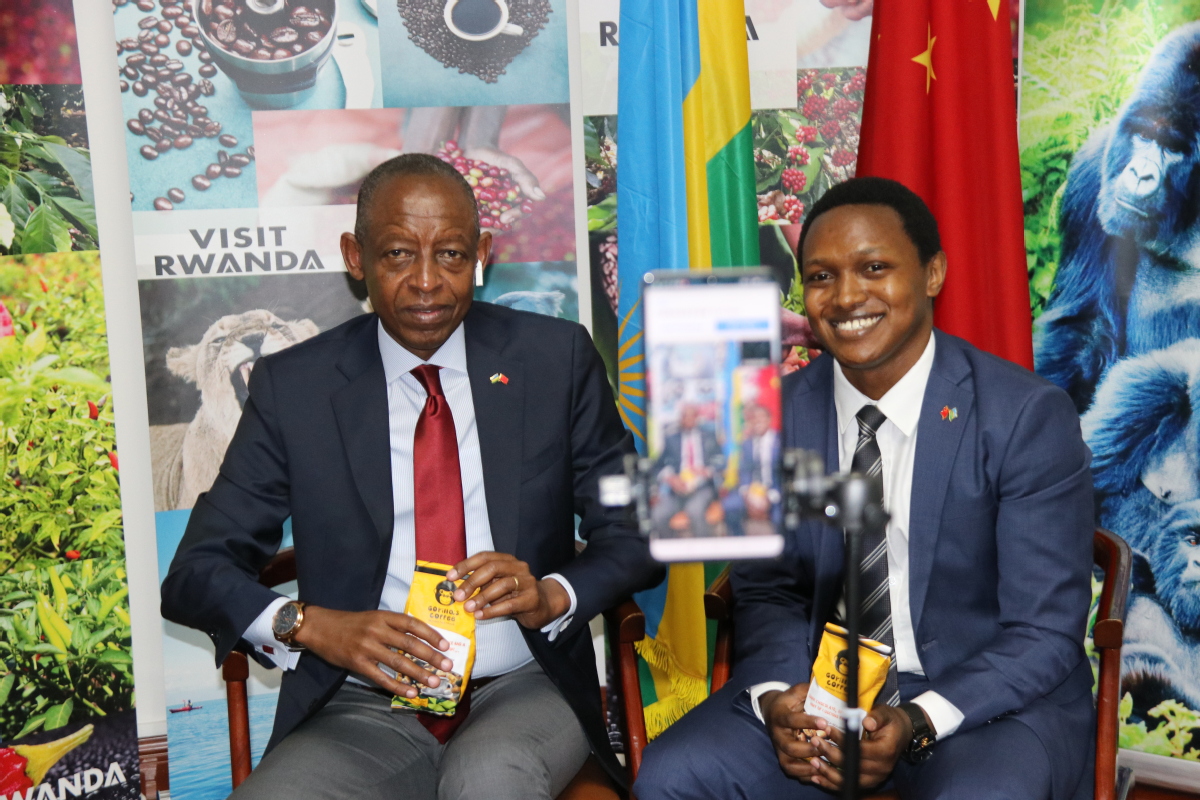Rwanda jumping on e-commerce bandwagon


James Kimonyo, Rwandan ambassador to China, said he has also taken on the role of being a spokesman for his country's specialties and attractions.
Kimonyo's endeavors to promote things from chili sauce and coffee beans to tourist sites have been kicked up a notch thanks to livestreaming, where people watch broadcasts through mobile phones and place orders online in real time.
"Apart from working to strengthen bilateral relations with China, part of my responsibilities here is also (from a) business aspect, and this covers promotion (of Rwandan products)," he told China Daily in a video interview.
"The conventional way of marketing hasn't been giving us the effects we want. But livestreaming is wonderful, making a lot of impact on many people," he said.
Kimonyo made his first livestreaming debut in January, when he teamed up with a well-known Chinese influencer on Taobao Live, introducing Rwandan coffee beans to Chinese viewers. In May, during a joint livestreaming session with Vera Songwe, under-secretary-general of the United Nations and executive secretary of the Economic Commission for Africa, Kimonyo witnessed 3,000 bags of packaged coffee beans being snapped up in just one minute.
In June alone, Kimonyo conducted two sessions on Taobao Live, promoting chili products and tourism resources in his country.
"It's so fascinating to see how people come rushing to buy products, especially when you work with the influencers," said the ambassador, adding that each time he allocates some time to coordinate with the influencers regarding what to say and how to say it.
Viewers were enthusiastic. A travel-themed promotional show saw some 120,000 viewers on June 18, whereas a June 26 show on Rwandan chili products garnered some 700,000 views.
Sales were also brisk. Alibaba said that for each package of coffee beans sold via Alibaba's platforms, Rwandan farmers stand to make an extra $4 per bag as this direct-selling model circumvents middlemen and makes transactions linear and efficient.
Behind the endeavor lies a broader architecture designed by Alibaba called the Electronic World Trade Platform, which aims to facilitate global trade between notably small and medium-sized enterprises using new technologies.
Ren Yuan, a senior manager at Alibaba's Globalization Office, said the livestreaming initiative took off at a time when global businesses were seeking quick and orderly resumption of work since the COVID-19 outbreak.
"We've long been mulling the use of livestreaming (to promote products), but the pandemic did give us an unexpected boost," Ren said. "As supply chains were previously disrupted, we considered one-time transportation of a large sum of products to help massively trim logistics expenses, thus lowering costs. That's when the livestreaming idea kicked in."
- Former Rwandan PM arrested over issuing bounced checks
- Rwanda to conduct street testing survey of COVID-19 in capital city
- E-commerce extends reach to Africa
- Rwanda conducts mass COVID-19 testing in western border town amid expanding caseload
- Rwandan scientists conducting research on immunity of recovered COVID-19 patients




































